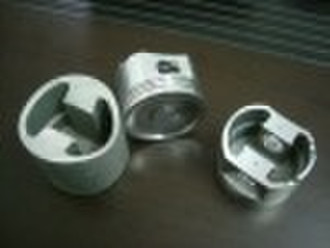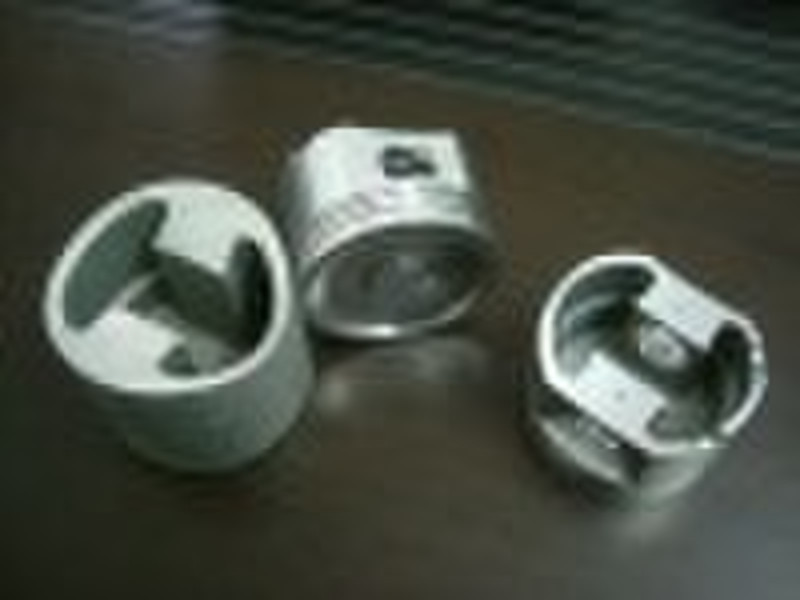Catalog
-
Catalog
- Agriculture
- Apparel
- Automobiles & Motorcycles
- Beauty & Personal Care
- Business Services
- Chemicals
- Construction & Real Estate
- Consumer Electronics
- Electrical Equipment & Supplies
- Electronic Components & Supplies
- Energy
- Environment
- Excess Inventory
- Fashion Accessories
- Food & Beverage
- Furniture
- Gifts & Crafts
- Hardware
- Health & Medical
- Home & Garden
- Home Appliances
- Lights & Lighting
- Luggage, Bags & Cases
- Machinery, Hardware & Tools
- Measurement & Analysis Instruments
- Mechanical Parts & Fabrication Services
- Minerals & Metallurgy
- Office & School Supplies
- Packaging & Printing
- Rubber & Plastics
- Security & Protection
- Service Equipment
- Shoes & Accessories
- Sports & Entertainment
- Telecommunications
- Textiles & Leather Products
- Timepieces, Jewelry, Eyewear
- Tools
- Toys & Hobbies
- Transportation
Filters
Search
Forged Piston and Piston Blank
original price: 160,00 USD
Chongqing, China
Production capacity:
1000 Set / Month

Michael Fan
Contact person
Basic Information
| Size | 81mm |
|---|---|
| Car Make | VOLVO |
| Place of Origin | Chongqing China (Mainland) |
| Brand Name | YOUFU PISTON |
| Model Number | L4 |
| Type | Piston |
High performance forged piston Material: 4032 2618 4A11 Main Features: 1) alloy, 4032, 2618 2) anti-high temperature 3) high performance index 4) anti-friction 4032 forged piston blank Pistons that are made from 4032 wrought aluminum alloy are designed for street/strip applications utilizing compression ratios that are compatible with pump gas. These pistons also provide a quieter engine on cold start-up. Physical Properties of 4032 Nominal Density 2.68 g/CC. 097 lb/in3 Mechanical Properties of 4032 Tensile Strength, Ultimate 380 MPa 55, 000 psi Tensile Strength, Yield 315 MPa 46, 000 psi Modulus of Elasticity 79 GPa 11, 400 psi Fatigue Endurance Limit 110 MPa 16, 000 psi 2618 forged piston blank Pistons made from 2618 wrought aluminum alloy are designed for higher performance applications such as FlyWeight or domed highcompression pistons. These environments necessitate the higher tensile strength 2618 aluminum alloy. Physical Properties of 2618 Nominal Density 2.81 g/CC. 100 lb/in3 Mechanical Properties of 2618 Tensile Strength, Ultimate 440 MPa 64, 000 psi Tensile Strength, Yield 370 MPa 54, 000 psi Modulus of Elasticity 74 GPa 10, 400 psi Fatigue Endurance Limit 125 MPa 18, 000 psi Coefficient of Thermal Expansion 2618 aluminum expands approximately 15% more than 4032 aluminum, thus the 2618's initial piston-to-wall clearance has to be 15% greater. This difference is most noticeable during a cold engine start. When cold, the 2618 piston can rock back and forth producing a slight noise (sometimes referred to as piston slap) Until the aluminum expands. Both types of aluminum have approximately the same clearances once the pistons have expanded and the engine is running at operating temperatures. Temperature Range Average CoefficientC F μm/m K μin/in F 20 to 200 68 to 392 23.2 12.9 Coefficient of Thermal Expansion for 2618 Temperature Range Average Coefficient C F μm/m K μin/inF 20 to 200 68 to 392 20.2 11.2
Delivery terms and packaging
Port: Shanghai
Payment term
Letter of credit
Telegraphic transfer
-
Payment Methods
We accept:












